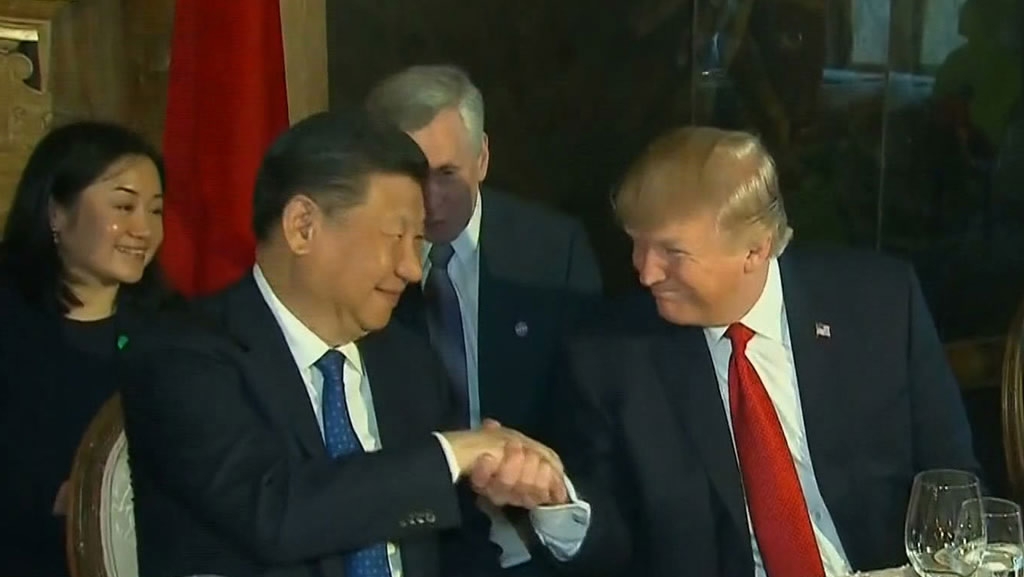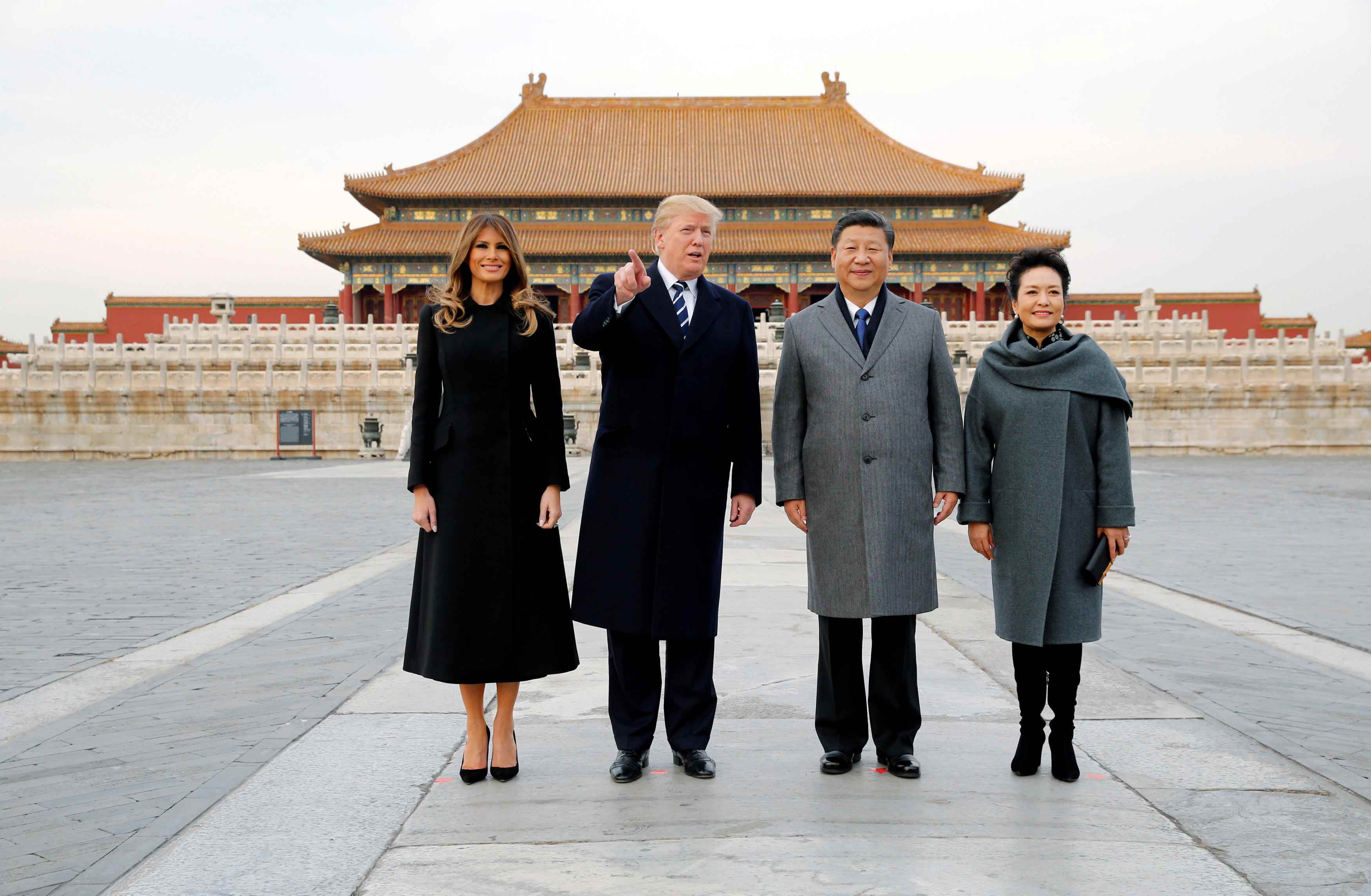
Politics
08:10, 09-Nov-2017
After past meetings with Xi, Trump taking softer stance on China
By Jessica Stone

During his election campaign, US President Donald Trump consistently took a hard line on China. But analysts said he had changed his tone on Beijing.
Throughout his presidential campaign, Trump pitted the Chinese worker against the American voter.
“They’re all taking our jobs. That’s all going to change very rapidly I promise,” Trump said during his campaign, arguing that he was the only candidate who could masterfully deal with Beijing because he, “deal[s] with the Chinese all of the time.”
But at his Mar-a-Lago estate, Trump struck a different note. “We have developed a friendship, I can see that,” he said of his relationship with Chinese President Xi Jinping.
He emphasized the importance of US-China cooperation – especially when it comes to Pyongyang.

US President Donald Trump and US First Lady Melania visit the Forbidden City
with Chinese President Xi Jinping and his wife Peng Liyuan in Beijing,
China, November 8, 2017. /Reuters Photo
US President Donald Trump and US First Lady Melania visit the Forbidden City with Chinese President Xi Jinping and his wife Peng Liyuan in Beijing, China, November 8, 2017. /Reuters Photo
Just hours after a failed DPRK missile test in April, Trump tweeted: “Why would I call China a currency manipulator when they are working with us on the North Korean [the DPRK] problem? We will see what happens!”
Trump reversed a campaign pledge. He declined to label Beijing a “currency manipulator.” He didn’t slap higher tariffs on Chinese imports, and he didn’t take any more calls from Taiwan’s leader after their first exchange.
“He has in that process had 180 degree ‘U-turn’ in policy towards China,” explained Sam Zhao of the Center for China-US Cooperation at the University of Denver.
“It’s not that he has changed his policy or changed the US policy; he’s changed his personal style of dealing with those issues.”
Trump has continued to press for the trade. Ahead of his state visit to China, a senior White House official predicted Trump would demand a reduction in the 347 billion US dollars trade deficit with China.
But if Trump pushes for concessions, at least one of China’s neighbors hopes he doesn’t press too hard.
Lee Hsien Loong, Singapore’s Prime Minister, expressed his hope that, “The US will be able to maintain a stable and constructive relationship with China-engaging each other in the highest levels, building trust and establishing institutional mechanisms.”
In an example of their cooperation in action, Beijing and Washington in September helped organize the most stringent UN sanctions against Pyongyang to date. The question now is what more could China and the US accomplish together.

SITEMAP
Copyright © 2018 CGTN. Beijing ICP prepared NO.16065310-3
Copyright © 2018 CGTN. Beijing ICP prepared NO.16065310-3